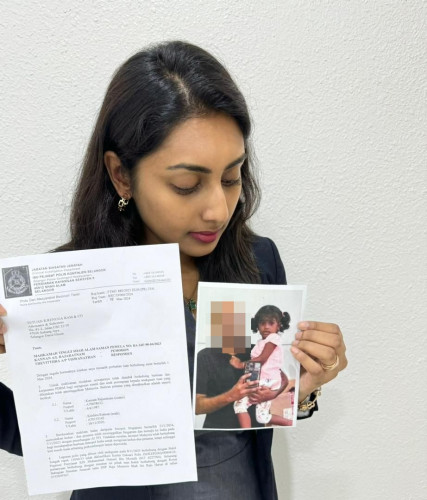SINGLE-use plastic drinking straws remain popular in Kuala Lumpur even though they were banned in 2020.
Restaurants and traders no longer seem to be adhering to the prohibition.
Checks by The Malaysian Insight found almost food and beverage outlet in the capital has ignored the ban.
Sahabat Alam Malaysia president Meena Raman said the problem was a lack of enforcement.
“The failure of enforcement is the main reason the initiative has failed," Meena told The Malaysian Insight.
He said offenders must be penalised. So long as no action is taken and no one is prosecuted and punished, it is business as usual," she added.
The Federal Territories Ministry banned non-degradable plastic packaging in 2017.
Plastic straws were prohibited in 2020. The same year, City Hall said it had made compliance to the ban a licensing requirement for businesses, with the aim of making the city plastic-free.
Those who flout the law could have their business licence revoked, be fined or be imprisoned for up to a year.
Meena urged the government to intensify its "Say no to plastic straw campaign" while taking sterner action against the offenders.
"Awareness campaigns alone aren't sufficient. There must be deterrent actions.
"If they don't comply, maybe issue a warning followed by a fine. If they continue to flout the law, revoke the business licence," she said.
Make customers pay
Biodegradable and reusable straws made of metal, glass, bamboo, and even lemongrass came into existence when plastic drinking straws were proscribed.
People could be seen with their own straws when they were out but the trend seems to have fizzled out over time.
Many medium- and high-priced restaurants and cafes provide biodegradable straws, but the cheaper eating places do not because of the high cost of such straws.
For the "no plastic straw" policy to succeed, Meena said food and beverage outlets should start charging a small fee for biodegradable straws to offset the costs.
"People are supposed to bring their own straws by now."
Federation of Malaysian Consumers Associations secretary-general Paul Selvaraj said charging for biodegradable straws would only work if there was enough awareness of the harms of single-use plastics.
"If you're going to increase the cost because of environmental reasons, then people must be made aware of it.
"This is where education about plastic comes in. People were unhappy when they had to pay for plastic bags in the supermarkets but they have accepted it over time."
"Without education it is not viable to charge more. People will rebel. There must be awareness," Selvaraj said.
Education and awareness
Plastic pollution is a global problem. Plastic consumption must be reduced in favour of a more sustainable practice .
Malaysia set an ambitious roadmap in 2018 to eliminate single-use plastics by 2030.
Selvaraj emphasised the need for continuous engagement with the stakeholders for Malaysia to achieve its target.
"There should be more engagement with stakeholders such as the manufacturers, traders, F&B outlets," Selvaraj said.
"Of course, enforcement is crucial but there should be continuous awareness campaigns for consumers about the risks of plastics.
"If anything is made into law and there is no enforcement, old behaviours will just creep in again. Consumer education is crucial and that is very much lacking.
"The urgency is simply not there," he added.
Selvaraj said campaigns that require people to make behavioural changes must be continuous and persistent.
He said the government must start teaching the effects of using single-use plastic straws in primary school.
"Such things should be taught early in school. It should be a matter of culture and not just obeying the law.
"We need an urgent approach, both in enforcement and education," he said.
City Hall did not respond to numerous requests for comment. – May 29, 2024.






.jpeg)












